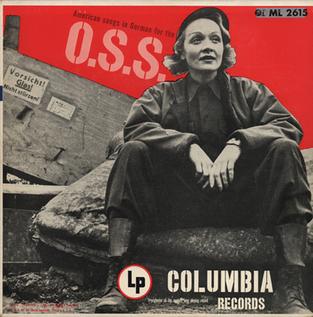Described as "a wild original", and hailed as the ninth-greatest female star of classic Hollywood cinema, Maria Magdalene Dietrich would have been 116 on Wednesday.
In her honour, Google is changing its logo in 24 countries to a doodle.
During World War II, Dietrich was a high-profile entertainer in the US and was also noted for housing German and French exiles, providing financial support and advocating for their US citizenship.
Dietrich was honoured several times for her work on improving morale on the front lines during the war. The awards included the US Medal of Freedom and the French Legion d'Honneur. She was also named by Belgium a Knight of the Order of Leopold.
In 1999, the American Film Institute named Dietrich the ninth-greatest female star of classic Hollywood cinema.
World War II
- Nazi Germany. Born in Berlin in 1901, Miss Dietrich took up an acting career, but also grew up with strong political convictions.
- She opposed Nazism, and when Adolf Hitler, who carried out the Holocaust, began arresting Jews, she helped many friends escape. During the Holocaust, more than six million Jews and millions of ethnic and political minorities were systematically killed.
- US citizenship. In interviews, Dietrich said that she had been offered by Nazi agents to star in any movie of her choice. She reportedly rejected the offer.
- In 1939 she became an American citizen and renounced her German citizenship. Her movies were banned in Germany.
- War effort. In December 1941, the US entered World War II, and the actress became one of the first celebrities to sell war bonds, debt securities that helped finance military operations.
- She became a symbol of free Germany. She made anti-Nazis broadcasts in German, and in three years she entertained half a million allied troops and war prisoners across North Africa and Western Europe.
- 'At the front lines'. During two extended tours in 1944 and 1945, she performed for allied troops in Italy, the UK and France, then went into Germany. When asked why she had done this, in spite of the obvious danger of being within a few kilometres of German lines, she replied, "aus Anstand"—"out of decency".
- She toured the US from January 1942 to September 1943 (appearing before 250,000 troops on the Pacific Coast leg of her tour alone) and was reported to have sold more war bonds than any other star. Billy Wilder, an Austrian-American filmmaker, later said that she was on the front lines more than Eisenhower.

No comments:
Post a Comment